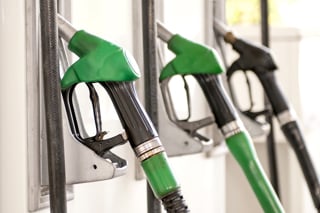Richard Peak, director at Nextbase
It has never been this pricey to run a fleet.
Fleet managers face an avalanche of rising costs as they look to keep their drivers on the roads, from insurance, fuel, and the cost of vehicles themselves.
More well-funded fleet managers may be able to alleviate the cost of fuel by buying electric vehicles (EVs). But the majority, particularly those facing other cost pressures, simply can’t afford such expensive cars.
Here’s a look at how prices have risen in the last year and some tips to soften the blow.
Buying vehicles
For fleet managers, upgrading a fleet is a costly process at the best of times, and recent years have seen a spike in the cost of even second-hand cars.
The Autotrader price index puts the average used car price at £17,801 in November 2022, up 4.7% from the same point in 2021.
How to save? Manual cars are typically quite a bit cheaper than automatic ones. Smaller cars with smaller engines are generally cheaper to both buy and run, if you don’t mind the reduction in horsepower.
Insurance – where the biggest savings are
Given how expensive those cars and vehicles are, comprehensive insurance is a must have, especially for fleets rocked by the threat of crash for cash scams.
Overall, the cost of insurance has risen significantly in 2022, rising 14% year-on-year (YoY), the highest yearly increase in five years.
The price of insuring vans and other commercial vehicles is generally far higher than for cars, so these increases will be felt by fleets far more acutely than your everyday driver.
How to save on insurance
You can show insurers that your drivers are more sensible than other drivers by buying a dash cam.
This will save you a lot on your insurance even if they never have an incident. And if they do have an incident, it will save you even more.
Our research shows this can save drivers up to 30% on their insurance, but the largest savings come if you are involved in an incident through no fault of your own, helping you retain your no-claims bonus.
In most crashes, both people will have to claim if there is no proof, meaning both sides lose their no claims bonus.
However, if dash cam footage shows you were clearly not in the wrong it will be far more likely that the other party’s insurance pays for the whole thing, leaving you to keep your non-claims bonus.
It could take you close to a decade to get the discount back – meaning thousands of pounds down the drain – all while you should have been paying just £300.
Without a dash cam the costs of a single crash mount up into the thousands quite quickly, even if your insurance 'covers' it and you aren’t at fault at all.
Getting it fuelled
Everyone knows how expensive fuel has become since Russia invaded Ukraine.
While prices have fallen from their summer peak, the prices of petrol and diesel are still higher than any point between 2014 and 2021. With 2022 seeing the highest average price since at least 2000.
Pre-pandemic in 2019, the average car was driven 7,400 miles a year. The average diesel car in the UK gets 43 miles per gallon (MPG), while the average petrol car gets 36 MPG. The yearly cost of this has risen over £200 since September 2021.
For fleets these miles are not a luxury, but a necessity that is business critical, so ways to save fuel are key,
How to save
Making sure tyres have the correct pressure and using the right engine oil will make your cars run far more efficiently.
It is also important to use heating and air condition sparingly, wrapping up warm in winter and rolling down the window at low speeds in summer.
Finally, make sure that your drivers’ cars are not carrying any excess weight, even small objects cost money to carry around day after day.
Are these tips going to wipe off the price increases for fuel, second-hand cars and insurance? Not fully, no – but it’s a start. And with costs going up like they are, any savings you can find are key.
> Interested in comparing electric vehicle data? Check out our EV tool.
> Interested in ensuring the efficient use of EVs. Check out our dedicated editorial sections: Insight & policy | EV news | Charging & infrastructure | Costs & incentives | Benefit-in-kind | EV case studies | EV road tests





















Login to comment
Comments
No comments have been made yet.